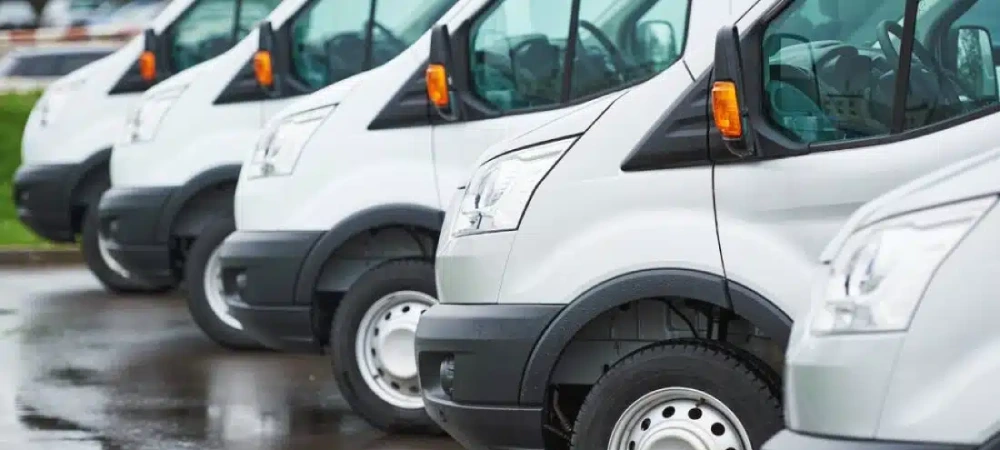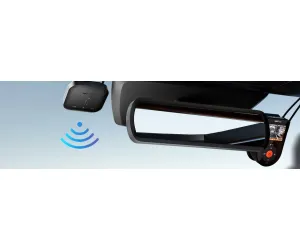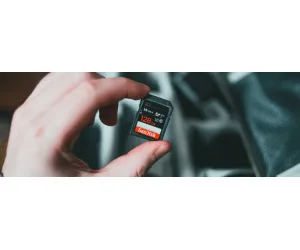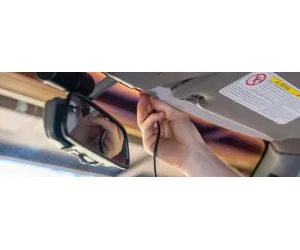
For businesses, dash cams are more than just tools for recording road incidents—they serve as valuable assets for improving operations, enhancing safety, cutting costs, and maintaining a positive reputation.
In the event of an accident involving a fleet vehicle, dash cam footage provides crucial evidence, helping determine what occurred. This clarity is vital for insurance claims, protecting companies from false accusations, and expediting claim resolutions.
What Are Dash Cams?
Dash cams are cameras installed in vehicles to record activity both inside and around the car. These devices are typically mounted on the dashboard or windshield.
- Types of Dash Cams:
- Some record only the road ahead.
- Others capture the car's interior.
- Certain models do both, while advanced versions monitor the vehicle’s exterior to detect hazards.
Dash cam recordings serve multiple purposes, such as:
- Monitoring driving behavior, especially for businesses managing fleets.
- Providing valuable evidence in the case of accidents or thefts.
- Supporting insurance claims, legal cases, or investigations into incidents.
How Does a Dash Cam Work?
Dash cams operate like digital cameras, using a lens to focus light onto an image sensor. Here's a simplified overview:
- Light Conversion: The sensor's light-sensitive cells convert incoming light into electrical signals.
- Digital Processing: These signals are transformed into digital data.
- Storage: The data is saved on a storage device, such as an SD card, for future access.
Dash cams continuously record as long as they are powered, typically through:
- A cigarette lighter cable.
- Hardwiring to the vehicle’s fuse box.
Modern dash cams often include features like Wi-Fi, GPS, motion detection, night vision, and cloud storage, enhancing their functionality.
How Much Do Dash Cams Cost?
Dash cam prices vary based on features:
- Basic Models ($70–$100): Offer essential recording capabilities.
- Mid-Range Options ($200): Include features like 4K resolution, night vision, and interior monitoring.
- High-End Dash Cams ($400+): Provide advanced features like GPS tracking, parking surveillance, and cloud connectivity, ideal for theft recovery or detailed monitoring.
Benefits of Fleet Dash Cams
- Accident Documentation: Dash cams offer real-time, unedited recordings that provide a transparent account of events.
- Accident Reconstruction: Footage helps reconstruct accidents by detailing vehicle positions, speeds, and driver actions, aiding law enforcement and insurance investigations.
- Fraud Prevention: Dash cams deter and expose insurance fraud by capturing the full scope of incidents.
- Improved Driving Habits: Reviewing dash cam footage can help drivers identify and correct unsafe behaviors.
Potential Drawbacks of Dash Cams
While dash cams offer numerous advantages, there are some drawbacks to consider:
- Obstruction: Poor installation may create blind spots or distractions.
- Theft Risk: Visible dash cams may attract thieves.
- Legal Risks: If dash cam footage shows you were at fault in an accident, it could be used against you in court.
Data Management in Dash Cams
Dash cams handle data differently depending on the model:
- Continuous Loop Recording: Most dash cams overwrite older footage once the storage device is full, ensuring uninterrupted recording.
- Incident-Based Recording: Certain events (e.g., sudden braking, collisions) trigger the dash cam to save footage in a protected folder, preventing overwriting.
- Cloud Storage: Some models upload footage to the cloud, allowing remote access and reducing the risk of data loss.
How Dash Cams Record Videos
Dash cams record videos using various features:
- Incident Recording: Captures footage before, during, and after events like collisions or sudden stops.
- Continuous Recording: Records non-stop and overwrites old footage when storage is full.
- Parking Mode: Allows the camera to record while the vehicle is parked, using motion or impact sensors to detect and record activity.
Accessing Dash Cam Footage
Methods for viewing dash cam footage vary:
- SD Card: Remove the card, insert it into a computer, and access the videos.
- Wi-Fi or Bluetooth: Some models allow wireless connectivity for cloud uploads or mobile app viewing.
- Cloud Storage: Enables easy editing, sharing, and remote access to recordings.
Conclusion
Dash cams are powerful tools for personal and business use, offering safety, accountability, and peace of mind. Whether you’re a fleet manager looking to enhance operations or a driver seeking added security, understanding the features and functionality of dash cams ensures you can make the most of this technology.
Frequently Asked Questions (FAQ)
- Why should businesses invest in dash cams?
Dash cams provide essential benefits such as increased security, accident evidence, insurance claim support, and improved driver accountability. They help businesses reduce risks, enhance operational efficiency, and save costs in the long run. - Are dash cams legal for business vehicles?
Yes, in most regions, dash cams are legal for business use. However, businesses should ensure compliance with local privacy laws, especially when recording employees or customers. It’s best to inform drivers that they are being recorded. - Can dash cams help reduce insurance costs?
Many insurance providers offer discounts for fleets equipped with dash cams, as they provide crucial evidence in case of accidents or disputes. This can lead to lower premiums and fewer fraudulent claims. - Do dash cams record continuously?
Most modern dash cams have loop recording, meaning they record continuously by overwriting old footage once storage is full. Some also include motion detection and event-triggered recording for efficiency. - How do dash cams improve driver behavior?
Dash cams encourage safer driving by recording and analyzing behaviors such as speeding, harsh braking, and reckless maneuvers. Knowing they are being monitored helps drivers adopt safer habits, reducing accidents and liability. - What types of businesses benefit the most from dash cams?
Any business that relies on vehicles, such as logistics companies, delivery services, taxi fleets, and corporate transport providers, can benefit from dash cams by improving safety, efficiency, and accountability. - Do dash cams require regular maintenance?
Yes, it’s recommended to check dash cams regularly to ensure they are functioning properly. This includes verifying power connections, clearing storage space, and updating firmware when needed. - Can dash cams help prevent vehicle theft?
Yes, many dash cams have parking mode and motion detection features that record suspicious activity when the vehicle is parked, acting as a deterrent against theft and vandalism. - How can businesses choose the right dash cam?
Businesses should consider factors like video quality, GPS tracking, cloud storage, night vision, and real-time monitoring features when selecting a dash cam that meets their needs. - Where can I purchase high-quality dash cams for my business?
You can explore our collection of high-quality dash cams tailored for business use at bsta.sa, where we offer a range of options suited for different business needs.







